Welcome to another issue of The Newport Cornucopia where we dig through the newspapers archives for interesting news articles and adverts. All articles are posted verbatim and most headlines are original (headlines in quotes are my own).

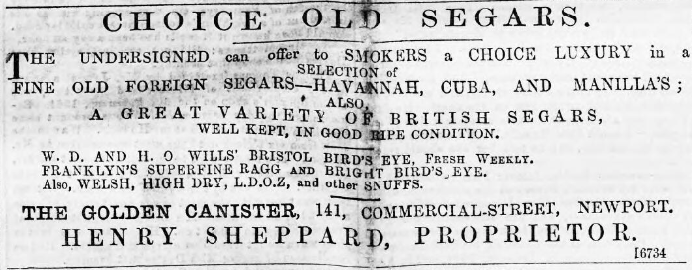
‘The Speed of the Public Coaches’
We have felt it our duty, on more than one occasion, to complain of the dangerous speed at which the public coaches are driven through this town, and having experienced the courteous attention of Sir Francis Freeling on a former representation from another part of this county, we would now submit the propriety, humanity, and indeed the necessity, of an arrangement whereby the velocity of his Majesty's mails may be decreased on passing through densely crowded places, such as Newport.
The distance between the Salutation and the King's Head Hotel, is about half a mile, and the time rained by a gallop instead of a safe trot, so far would make no material difference, at least not of sufficient importance to counterbalance the safety of the lives and limbs of the King's subjects.
— Monmouthshire Merlin, Saturday 14th May, 1836
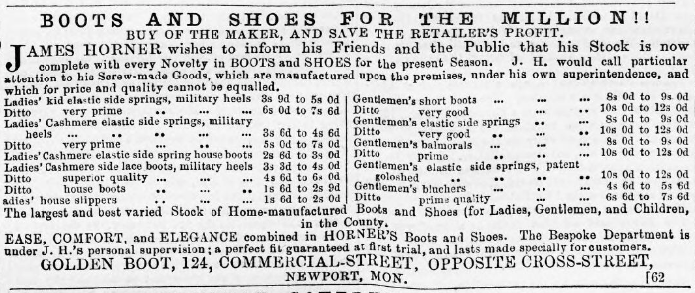
‘Breaking of the Sabbath in Caerleon’
To the Editor of the Monmouthshire Merlin.
Mr. EDITOR,—Sir,—One of the most prevailing sins of the present day is that of Sabbath-breaking, and, probably in no place is it more shamefully and openly practised than in the town and neighbourhood of Caerleon.
There being no periodical, exclusively devoted to religious subjects, published in these parts, of which I might avail myself, allow me, through the medium of your truly valuable paper, to call the attention of civil authority to this flagrant desecration. In walking the suburbs of this place, at almost any hour of the Sabbath, (particularly from immediately afternoon, till dark) numerous groups of young persons are constantly seen gambling at the notorious game of “pitch and toss”, playing at “rounders”, “bandy”, or other sports, of which cursing and swearing are the common attendants.
It is melancholy, too, to think of the amount of vice which is suffered to exist in some of the public-houses, on this day, not to speak of the drunkenness and blasphemy (of which they are the temples) which is carried on in them during the week. Too frequently, of a Saturday night, between eleven and twelve o'clock, do we hear loud bursts of unholy mirth, accompanied with stamping of feet and clapping of hand, that even shake the walls which contain the revellers, many of whom spend the following day in nearly a similar manner, steeped in intoxication.
Now, sir, is it not the duty of the magistrates of this place, to exercise their influence in directing the constables to perform their office in suppressing abominations like these? Surely, the religion of which the magistrates profess themselves the supporters, calls loudly upon them to defend her institutions, and enforce her precepts. Besides, they are responsible to God and their country, for the exercise of the important power with which the civil law has invested them. Let them, therefore, be admonished that they take heed to fulfil their magistracy.
I fear it is more than probable that the aspect of this place exhibits the effects of a curse, which it may require many prayers to remove. If, for the sake of the few righteous which may be found here, we have not been visited, like Sodom of old, with a flaming tempest, I am sorry to say, the curse of ancient Babylon seems to me in a great degree applicable, when it said, that she is become the habitation of devils, and the hold of every foul spirit!
Let them who dwell here took to it; and may those who are commissioned to dispense the law, listen to the cries of justice, and do it.
I am, Sir, your most obedient servant,
AN INHABITANT OF CAERLEON
— Monmouthshire Merlin, Saturday 21st May, 1836

The Coach and Horses, High Street
A mention of the Coach and Horses pub at the Quarterly Meeting of Newport Town Council in 1854. The pub was located on 25 High Street which is approximately on the corner of the present-day Newport Market.
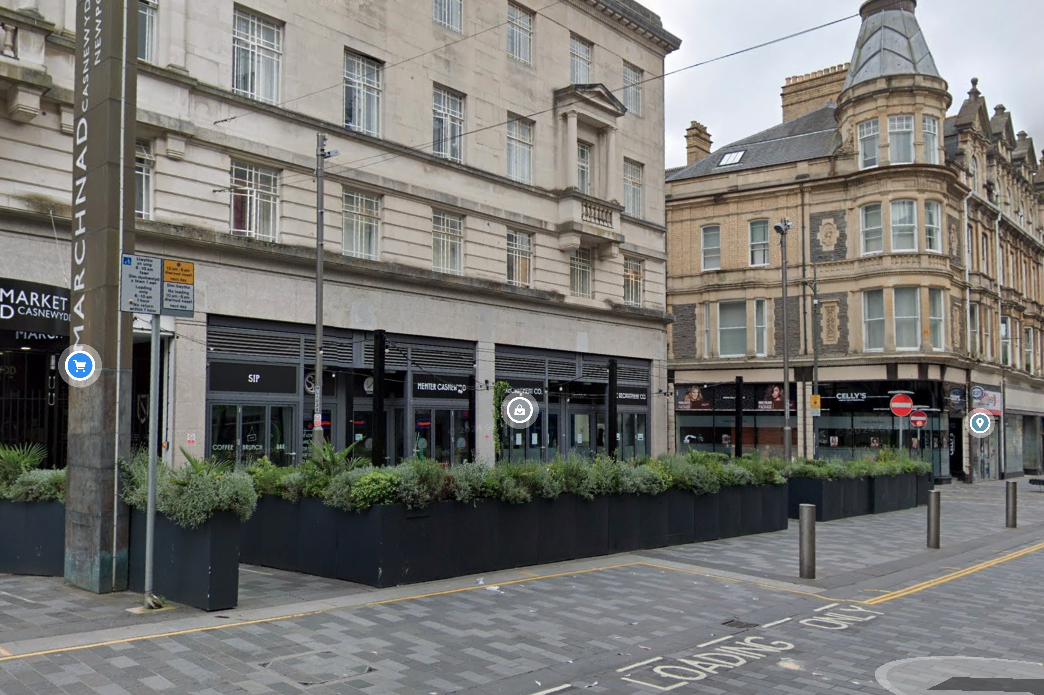
Mr. Townsend reported that a delay had been occasioned with regard to the removal of these premises, in consequence of the parties holding the property considering it desirable to obtain the signature of Mr. Hole, jun., (who attained his majority on the 26th ult.) before the house should be pulled down. This, however, would, he believed, be speedily accomplished, and then the "Coach and Horses" would be taken off the road.
— Monmouthshire Merlin, Saturday 5th May, 1854


'Man Steals Boots To Try On In Different Shop'
Edward Hurene, Blewitt-street, was charged at Newport Court on Wednesday with stealing three pairs of boots, the property of Messrs. Cash and Company. On Saturday night prisoner was seen to lift the boots from the shop door, put them under his coat, and walk off. The shopkeeper stopped him, and prisoner replied he was only taking the boots to another shop to try them on. He threatened to strike the shopkeeper, but a policeman arrived on the scene, and locked him up. He was sentenced to 14 days imprisonment with hard labour.
— South Wales Argus, Thursday 9th November, 1893
'Stealing Scrap Iron'
David J Ennis and Daniel Grace, youths from Potter's-parade, were charged on remand, before the Newport Bench with stealing iron from the locomotive yard. They were seen on Sunday, 29th ult., by PC Bristow carrying off about 20lb of scrap iron from some loaded trucks in the yard. When they saw the constable they dropped the iron. Defendants, who pleaded guilty, stated they had entered the yard to look for a football. They were sentenced to be locked up till Thursday night.
— South Wales Argus, Thursday 9th November, 1893
'A Notorious Drunkard'
Ellen Evans, a notorious drunkard, though a married woman, advancing in years, was charged with being drunk and incapable, and with throwing stones at the door of John Ponsford, marine store-dealer. She pleaded guilty to being drunk on Friday but denied the "soft impeachment" of injuring Mr. Ponsford's door yesterday afternoon. Sergeant Harlow was ready to prove the first offence and Ponsford clearly showed the improprieties of the beldame's conduct. P.C. Williams, who apprehended her, stated that one of the usual Sunday Cross street mobs was assembled on this occasion.—Fined, for drunkenness, 5s., and 1s. 6d. for damage to the door, and 9s. 6d. costs, or one month's hard labour.
— Monmouthshire Merlin, Saturday 5th May, 1854
'Taking a Nap in a Hay Loft'
Robert Pearce, of Bassalleg, a young man dressed in his best clothes, was charged with sleeping in Mr. Gratrex's hay loft this morning. The Mayor asked defendant why he had gone to the hay loft to sleep. Why had he not staggered home to Bassalleg, for it was down-hill nearly all the way? (Laughter.) Defendant said he knew the gardener at King's Hill, and went there to see him.
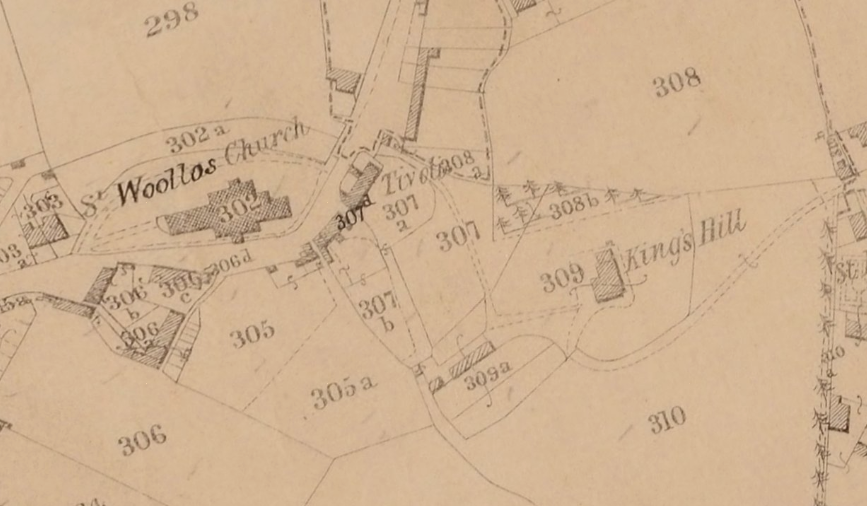
He was sorry to say he was in the employ of the Rev. Chancellor Williams, of Bassalleg. Mr. Kessiek; Sorry to say so? Defendant: Yes; because I have disgraced my master by my conduct. P.C. Wilcox said lie was groping about this morning, seeing what he could observe of an improper conduct, when he lit on Pearce in the hay-loft. Ordered to pay costs and discharged.
— Monmouthshire Merlin, Saturday 5th May, 1854
'She Went Down "Saucing" Sergeant Long'
Mary Ann Welsh was charged with being a drunken and disorderly character at the Newport dock. Sergeant Long, of the Dock police force, said prisoner had been "up" once before for similar conduct. On this occasion, she was drunk, and stript (sic) to fight another woman on the dock. The Mayor said Mary Ann would require half the time of a policeman to look after her. She said the officer had a spite against her. The Superintendent gave prisoner a bad character. —Fined 5s. and 8s. costs, or a month's imprisonment. She went down "saucing" Sergeant Long at a smart rate.
— Monmouthshire Merlin, Saturday 5th May, 1854
Boy Steals 20lbs of Bacon
Timothy Abbey, a youth of dubious character, employed in a canal boat, who said he was 13 years of age though his mother said she believed he was 16, was charged with stealing 20lbs. of bacon, the property of Robert Roberts, beerhouse-keeper, at Cefn, Bassalleg, where he had gone beerhouse-keeper, at Cefn, Bassalleg, where he had gone for a pot of beer. — Mr. Cathcart was attorney for the prosecution, and Mr. Champ for the defence. —The prisoner was treated as a juvenile, and pleaded, guilty to the charge. Sentenced to six weeks' hard labour.
— Monmouthshire Merlin, Saturday 19th May, 1854
'Stealing a Monkey Jacket'
Augustus Voiet, John Henry Freeland, and Charles Wilson, were charged with stealing a monkey-jacket and pair of trowsers, the property of James Gould, Pillgwenlly. The ease was proved by complainant, and the evidence appearing to implicate Freeland only, Voiet and Wilson were discharged. Freeland, on being asked what he had to say, said that he and Wilson (who had been discharged) went up to the sleeping-room at Gould's house, and Wilson put on a monkey jacket and wrapped a pair of pantaloons round his waist, and went to Druiff's and pawned them fur 6s.—Freeland was committed for trial.
— Monmouthshire Merlin, Saturday 19th May, 1854
Sunday Gamblers
George Farr, Thomas Young, Charles Davies, and Dennis Whelan, boys, all pleaded guilty to playing cards in Granville-street for money on Sunday morning. The constable picked up 2d. Fined 1s each. Sidney Gatehouse, James Hurton, and William Vickery, boys, also pleaded guilty to playing pitch and toss in Reform-buildings on Sunday morning. The constable secured two half-pennies. Fined 1s each.
— South Wales Weekly Argus, Saturday 7th October, 1893 (subscription required)

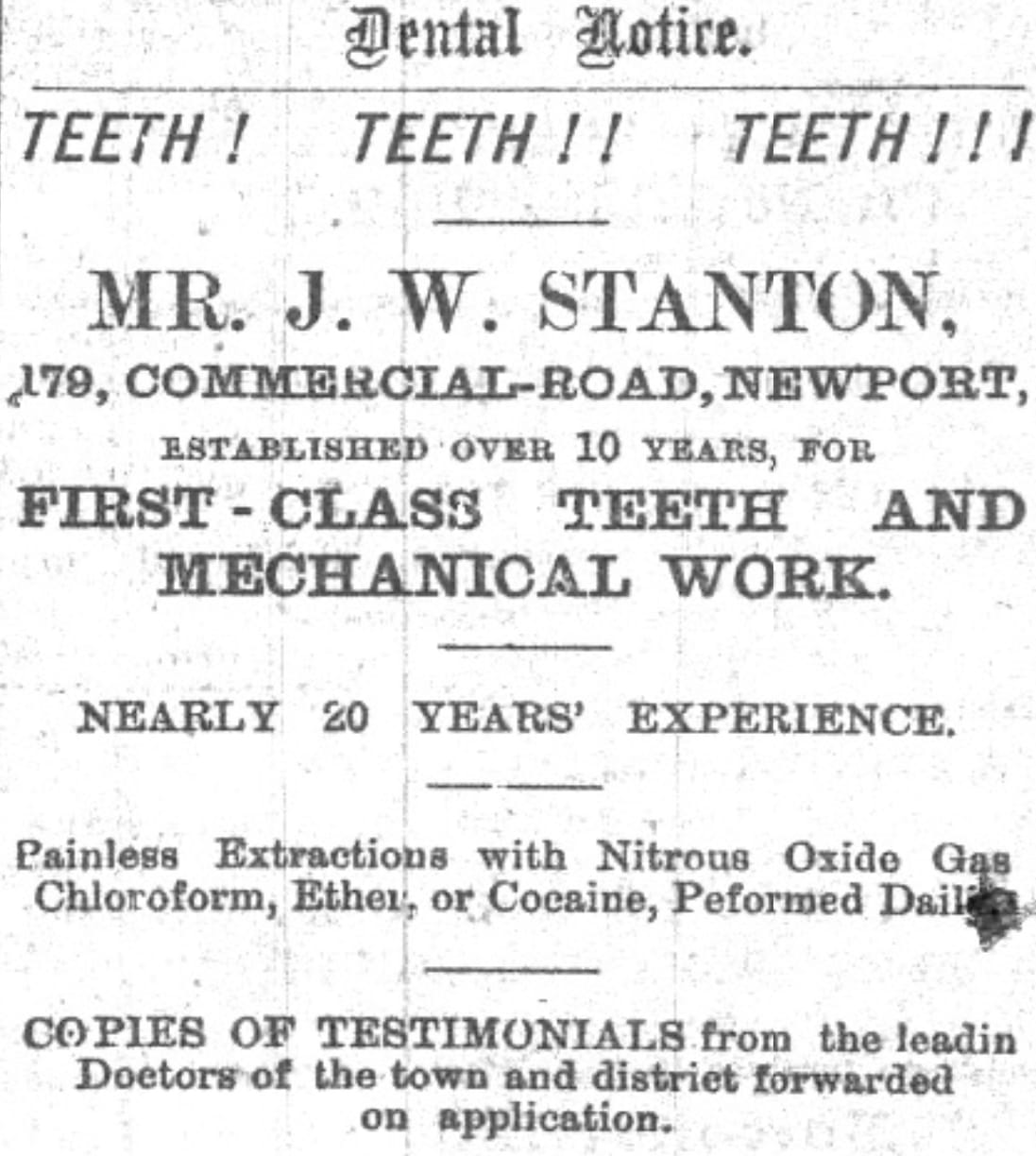
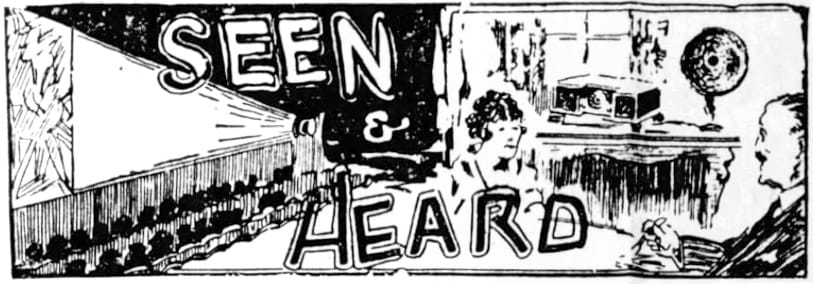
‘Little By Little Old Newport is Disappearing’
Little by Little Old Newport is disappearing and of houses associated with the Chartist riots of ‘39 there will soon be none. The old Westgate is gone, though the pillars of its portico, with the bullet-holes still remain; John Frost’s shop, much changed in appearance so far as the ground floor is concerned still remains, though it cannot long survive; but the cottage on the Gold Tops where the Chartist leader was arrested has just been pulled down. Is it too much to hope that on any building erected on or near the spot, a tablet be placed recording that I was the site of the cottage which the arrest took place?
— South Wales Argus, Saturday June 9th, 1900 (Subscription Required)
‘A link in the Frost Family an an Old Gold Tops Boy‘
Reader — “In ‘Seen and Heard,’ referring to the removal of the cottage on the Gold Tops in which John Frost, the Chartist, was arrested, you appear to be labouring under a mistake as to the site of that cottage. It was not one of those cottages which have recently pulled down on the right hand side of the road. The cottage in which the arrest was accomplished stood in a beautiful little garden on the left-hand side of the road, and at that time was occupied by an old Chartist named John Partridge, a compositor. It is several years since the old cottage was pulled down, and one of the Gold Tops villas was erected upon its site. "I may say that when John Partridge left the cottage my father rented it, and there as a boy I lived many happy years with my parents.”
Argus — If my correspondent is correct, and there appears to be no reason to doubt this story, the information upon which last week’s paragraph was based was inaccurate.
— South Wales Argus, Saturday 16th June, 1900 (Subscription Required)
‘Castle Turned into a Brewery’
A spirit of vandalism must have been abroad when the old castle at Newport was permitted to be turned into a brewery. This interesting old ruin will probably soon be almost hidden from sight, as operations are in progress for erecting a row of buildings right along the front of it. This will be a decided improvement on the present aspect of the place, but one could have wished that the old castle had either been left alone in its ruinous dignity, or converted into a repository for interesting relics of ancient times, with a suitable approach fashioned out for the public.
— South Wales Weekly Argus, Saturday 7th October, 1893 (subscription required)
‘Lack of Bells on Bicycles’
A few days ago, the Argus mentioned a case in which a lady was knocked down by a bell-less bicycle at Caerleon, and reference was made to the large number of bicycles which have no bells and the source of danger they are to the public. Another case has been brought to my notice this week. A lady compelled to go into the road by a hoarding in Commercial-street happened to turn her head for some purpose, and thus just managed to escape a bicycle coming along at great speed, its rider either unconscious of indifferent to the danger of his riding, having no bell wherewith to warn those in his vicinity.
— South Wales Weekly Argus, Saturday 7th October, 1893 (subscription required)


‘Shopkeeper Charged Under The Margarine Act’
Arthur Carmardine, Commercial-street, was summoned at Newport Court on Wednesday under the Adulteration Act, and further under the Margarine Act. Mr A.A. Newman prosecuted. He stated that defendant was manager to the Danish Butter Company. At the time the offence took place the firm was trading as the Home and Colonial Company, in a shop opposite the end of Corn-street.
Elizabeth Dutton, Corn-street gave evidence that on the 8th September she went into the shop, and among other purchases, she was served with half-a-pound of shilling butter, for which she paid 6d. Detective Faulkner then came in and asked her is she had been told her purchase was margarine. She replied she had not, and the assistant said to her, “I told you it was margarine.”
Cross examined by Mr H.S. Lyne: She had purchased the butter at request of the detective, who paid her for it. She could not read and could not say whether a large notice was posted up, “Margarine only sold here.” She was served at the left-hand side of the counter. The butter was wrapped in the paper produced, but she could not read what was on it.
Detective Faulkner, Inspector under the Foods and Drugs Act, corroborated the woman’s statement, and produced the analyst’s certificate which stated that the sample submitted to him was margarine with a little butter added for flavouring purposes. The label in which the butter was wrapped bore the words “Margarine, 1s per lb.” The retail price was 6d to 8d per lb, and during the winter months 6d to 10d. The margarine notice was on the right-hand side.
Mr Newman submitted that the notice on the paper was not in accordance with the Act. It might stand for an advertisement. Defendant was examined, and deposed that he told the woman it was margarine at 1s, and not butter. She nodded her head and said “Yes”, or words to that effect. There was a butter stand and a margarine stand in the shop, and the latter bore five notices. There was also a price-list hung up. Some jealousy existed between his employer and a rival. Henry Evan Thomas corroborated the statement as to what was told the woman. Mr Lyne submitted that defendant’s case had been clearly established, and it was most improbable that any one could be so foolish as to endeavour to sell margarine for butter from a stand plastered over with notices. He raised several points of law—that the manager should not have been summoned; that the sale did not take place to Detective Faulkner; that the sale did not take place to the prejudice of the detective or the woman; that the woman was served what she wanted (margarine).
The Bench replied that the sale did take place to the inspector as the woman was in his employment for the time being. The sale was prejudicial to the public through the inspector, who acted on their behalf. as for the notice, it was in the nature of an advertisement, and could be wrapped round any article. The Mayor said they were prepared to deal with the case on the facts, and they dismissed it. The other case was then withdrawn.
— South Wales Weekly Argus, Saturday 7th October, 1893 (subscription required)


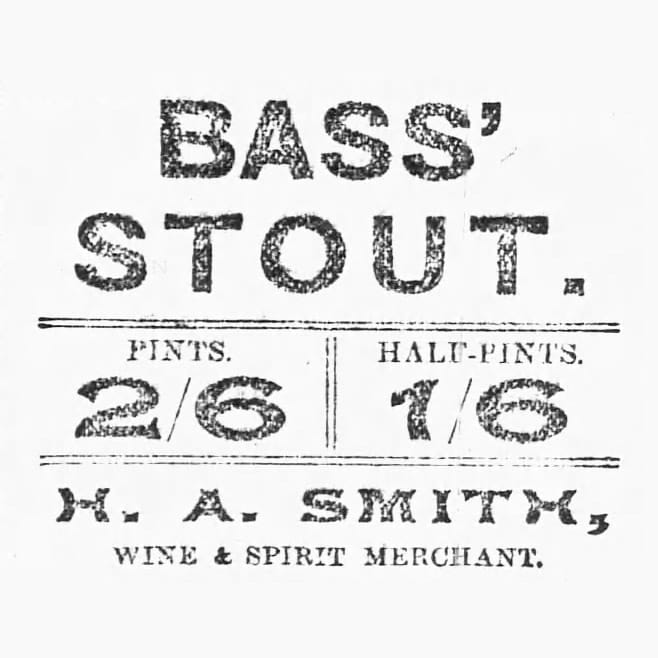
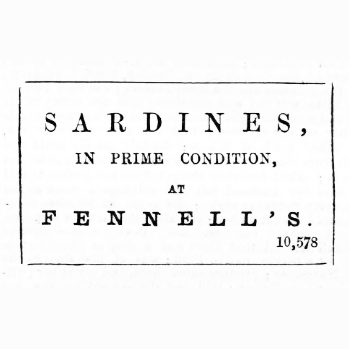
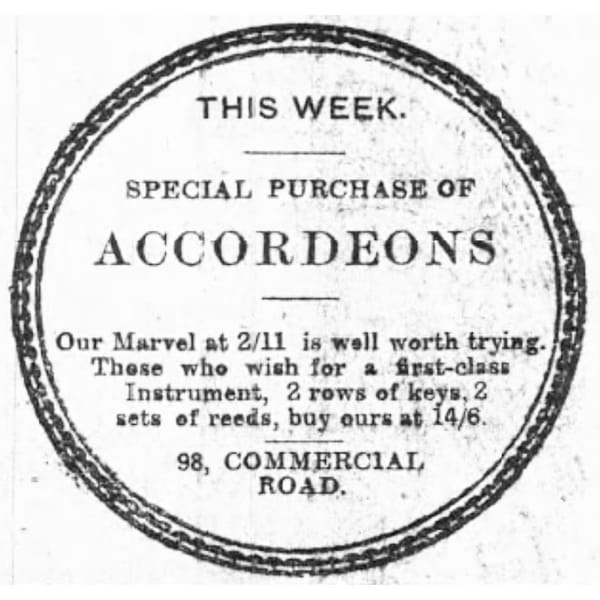
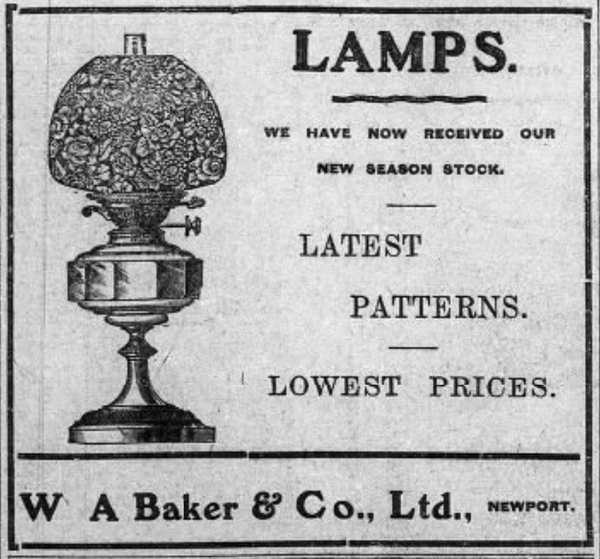


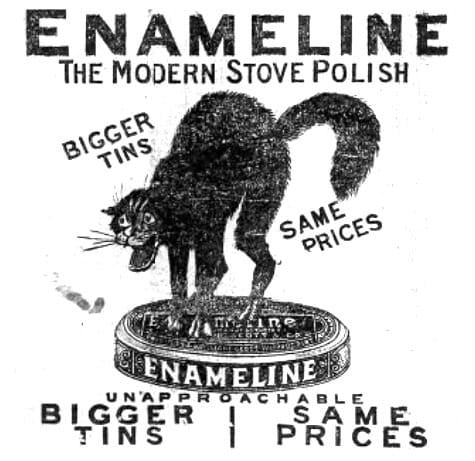
Member discussion